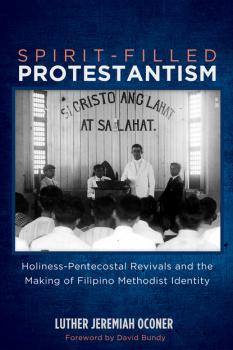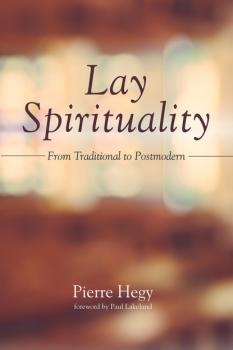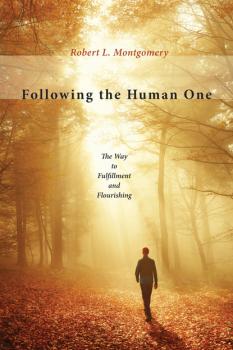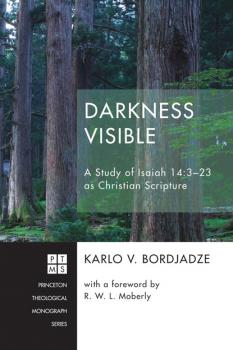MREADZ.COM - много разных книг на любой вкус
Скачивание или чтение онлайн электронных книг.Spirit-Filled Protestantism
In Spirit-filled Protestantism, Luther Oconer shows how holiness- and Pentecost-themed revival meetings called culto Pentecostal helped form the development of Methodism in the Philippines. He focuses on these revival meetings, their theological content, and the spiritual culture they helped perpetuate. The resulting narrative provides a rich rendering of both male and female American Methodist missionaries, their Filipino counterparts, and their followers that both celebrates and critiques them. Oconer also offers a unique perspective on Philippine Protestantism, which has often been dismissed for being too intellectual and formal. He defies the stereotype by demonstrating how culto Pentecostal revivals, with their emphasis on holiness and the baptism of the Holy Spirit, made Methodism the most innovative and successful of all Protestant denominations in the country prior to the Second World War. Accordingly, Oconer's treatment explains why Methodism provided a fertile seedbed for the emergence of the Manila Healing Revival and, consequently, the rise of Pentecostalism in the Philippines in the 1950s. A long-awaited volume on the history of Methodism in the Philippines, Spirit-filled Protestantism allows us to discern why Pentecostal impulses continue to shape Filipino Methodist identity in the twenty-first century.
Out of Adventism
From its humble beginnings in the nineteenth century, Seventh-day Adventism has remarkably grown to become one of America's largest, home-grown faiths, numbering nearly nineteen million members worldwide. Yet Adventism harbors dark secrets within its history. This is the true story of how one Adventist pastor, and university and seminary professor discovered these dark secrets and learned through painful, personal experience that neither the denomination nor its doctrine could be trusted. As his odyssey takes him from pastoral assignments in rural and urban congregations and finally into teaching religion at an Adventist university, he suddenly finds himself caught up in the maelstrom of a church's greatest theological crisis. For him, the denomination's theology and practice agonizingly unravel, forcing him to choose between loyalty to his church, his vocation, and his personal integrity. Rich in anecdotes and personal experiences, Out of Adventism guides readers interested in religious history, cults, and sects through the ins and outs of a religious community in crisis. Along the way, the reader not only gets an insider's view of Adventism, but also discovers a careful critique of the peculiar teachings of Seventh-day Adventism.
Karl Barth and Radical Politics, Second Edition
Karl Barth was one of the most important Christian theologians of the twentieth century, but his political views have often not been taken sufficiently into account. Beginning with a representative early essay by Karl Barth, this volume proceeds with essays by Friedrich-Wilhelm Marquardt, Helmut Gollwitzer, Hermann Diem, Dieter Schellong, Joseph Bettis, and George Hunsinger. These contributions engage both the relationship of Barth's theology to his socialist politics as well as Marquardt's analysis. This new edition expands upon the earlier one by adding three new essays by Hunsinger on Barth's theology and its relevance for human rights, liberation theology, and the theories of Rene Girard on violence and scapegoating. Hunsinger has extended the discussion as well as deepened our insight into how theology can speak meaningfully about fundamental issues of human need.
In Search for a Theology Capable of Mourning
To what extent are the children of Holocaust perpetrators to feel remorseful or responsible for their parents' wrongdoing? Is the yearning by those offspring of Nazi sympathizers for forgiveness justified, or should they separate themselves from their parents or relatives and ignore the history?
Such dilemmas have gnawed at theologian Martin Rumscheidt ever since, at age eighteen, he discovered his father's complicity in using Jewish slave labor at his workplace, IG Farben. He has written and spoken extensively about his journey in search of what he calls a theology of mourning that would preserve his concept of the reality of God and still recognize the reality–at times grim reality–of life.
Warlike Christians in an Age of Violence
How should Christians respond to war? This age-old question has become more pressing given Western governments' recent overseas military interventions and the rise of extremist Islamist jihadism. Grounded in conservative evangelical theology, this book argues the historic church position that it is inadmissible for Christians to use violence or take part in war. It shows how the church's propensity to support the «just wars,» crusades, rebellions, or «humanitarian interventions» of its host nations over time has been disastrous for the reputation of the gospel. Instead, the church's response to war is simply to be the church, by preaching the gospel and making peace in the love and power of God. The book considers challenges to this argument for «gospel peace.» What about warfare in the Old Testament and military metaphors in the New? What of church history? And how do we deal with tyrants like Hitler and terrorists like Islamic State? Charting a path between just war theory and liberal pacifism, numerous inspiring examples from the worldwide church are used to demonstrate effective and authentically Christian responses to violence. The author argues that as Christians increasingly drop their unbiblical addiction to war, we may be entering one of the most exciting periods of church history.
Lay Spirituality
Laypeople have a special mission in the church the way they have a special mission in society. In popular devotions the laity created a form of spirituality that lasted for over a millennium. Popular religiosity is alive in Latin America and in US ethnic subcultures. Vatican II redirected lay spirituality toward the liturgy as «the source and summit.» We will visit a parish where this ideal is put into practice, but in the wider church the role of the laity came to be restricted to ecclesial ministries. There are at least four new forms of spirituality in the making. I will first describe a vibrant evangelical church attended by many former Catholics. Next, we will visit a Guatemalan parish where over a thousand parishioners meet weekly in homes and witness to the gospel in their neighborhoods. The charismatic renewal is a major force of renewal in Latin America and among US Latinos. Finally, the spirituality of social justice is alive and well in south Chicago. In sum, this book will introduce you to six or seven major forms of spirituality alive today. Each of them defines a special place and mission for the laity in the church.
Following the Human One
Jesus Christ is the most famous person in human history. His favorite name for himself was «the Son of Man» or the «the Human One.» Rarely did his followers call him that, but it must have had great significance for him. This book describes why this name was so important and what it means for us now. Along with this favorite name, this book shows how Jesus Christ fulfills human longing, but at the same time is resisted by his own followers to this day. Nevertheless, his call to follow him has sounded down the centuries and been heeded by millions. The book leads to an exploration of the Way that is found in Jesus Christ, who called himself «the Human One.»
Darkness Visible
How does one read the Old Testament as Christian Scripture? This question, voiced in both academic and ecclesial settings, invites a reflection on how to take these texts with both hermeneutical alertness and sustained imaginative seriousness. While scholars have recently engaged in robust discussion about theological hermeneutics, there have been relatively few worked examples with particular Old Testament texts. This book seeks to meet this need by providing a close reading of Isaiah 14:3-23, a text with a complex amalgam of textual, historical-critical, history-of-reception, and theological issues.
95 Theses for a New Reformation
Five hundred years ago Martin Luther wrote his Ninety-Five Theses, inaugurating the Protestant Reformation, and with it exemplified an unflinching devotion to return to the Word of God as the ultimate authority. Today, the church is also in desperate need for reformation–a new reformation to correct her shortcomings and meet the challenges of the day. Some might see everything as fine, some might see everything as hopeless, and others might simply dismiss the church as irrelevant, too impotent to reform herself, much less to strengthen the disintegrating family or address the downward-spiraling culture with a prophetic voice.
95 Theses for a New Reformation confronts the necessity for reformation today head-on. Over thirty of today's pastors, theologians, and church leaders analyze ninety-five current problems, search the Scriptures for solutions, and make sound biblical appropriations to implement into the life of the church, family, and culture. On this 500th anniversary of the Protestant Reformation, let us pray that the Lord will again revive his church for his own glory and for the purification of Christ's beloved bride, the church. And let us prepare ourselves to respond with urgency to God's call to action by reforming the church, family, and culture.
Contributors include: John Frame, John MacArthur, R. C. Sproul, Peter J. Leithart, and James White
The Spirituality of Following Jesus in John’s Gospel
Research on «following Jesus» has mostly been done in terms of what Jesus' followers ought to do. In this unprecedented study, Kim presents «following Jesus» in John's Gospel through the perspective of what Jesus does for his followers. «Following Jesus» is a journey towards the place where Jesus leads his followers, that is, to a relationship with the Father. It is ultimately participating in the Son's communion with the Father. Jesus, who was in the bosom of the Father, descended from him and ascends to him, taking his followers with him, so that they may be with him where he is with the Father in glory and love. Kim develops this thesis by examining the term akolouthein («to follow») and correlated motifs in John's Gospel.









